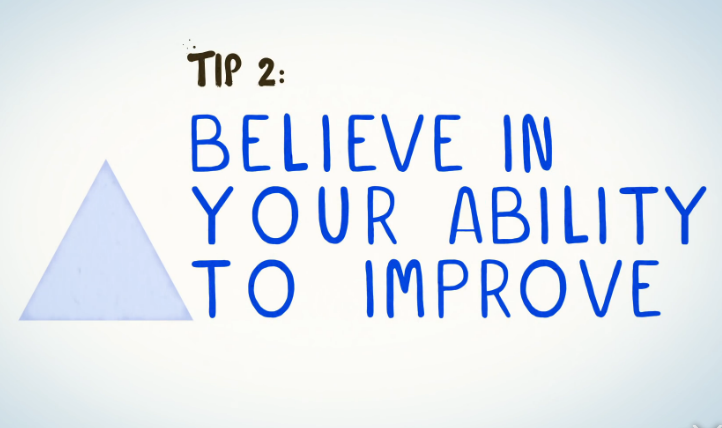So, by keeping in mind a few practical tips, we do actually have the power to cultivate our own confidence.
所以,通过牢记一些实用技巧,我们就能真正的拥有培养自信的能力。
Tip 1: a quick fix.
技巧一:快速调整心态。
There are a few tricks that can give you an immediate confidence boost in the short term.
善用一些小技巧让自己在短时间内快速提升自信。
Picture your success when you're beginning a difficult task,
当你面对一项艰巨的任务,试着想象你成功时的画面,
something as simple as listening to music with deep bass; it can promote feelings of power.
比如像听重低音的音乐这样简单的事,这可以提升你的正面能量。
You can even strike a powerful pose or give yourself a pep talk.
你也可以摆出一个强有力的姿势,或者对自己说鼓励的话。

Tip two: believe in your ability to improve.
技巧二:相信自己会进步。
If you're looking for a long-term change, consider the way you think about your abilities and talents.
如果你追求的是长期的改变,不妨想一想你对自己的能力与天赋的看法。
Do you think they are fixed at birth, or that they can be developed, like a muscle?
你认为能力是先天的吗?还是像肌肉一样可以锻炼?
These beliefs matter because they can influence how you act when you're faced with setbacks.
这些想法很重要,因为当你面对挫折时它们会影响你的所作所为。
If you have a fixed mindset, meaning that you think your talents are locked in place,
如果你有自我设限的想法,那就意味着你对于自身的天资没信心,
you might give up, assuming you've discovered something you're not very good at.
你也许就会放弃。认为自己就是不擅长这件事。
But if you have a growth mindset and think your abilities can improve,
如果你拥有成长性思维,并认为自己有能力可以改善,
a challenge is an opportunity to learn and grow.
挑战于你而言将会是一次学习与提升的机会。
Neuroscience supports the growth mindset.
神经科学支持成长型思维的想法。



